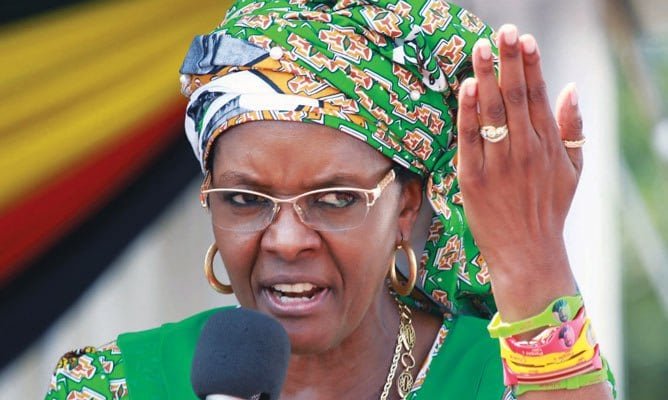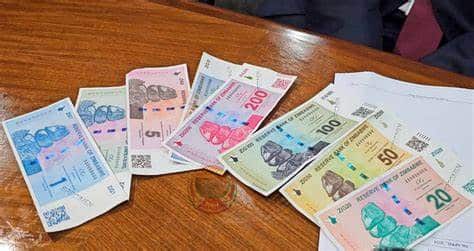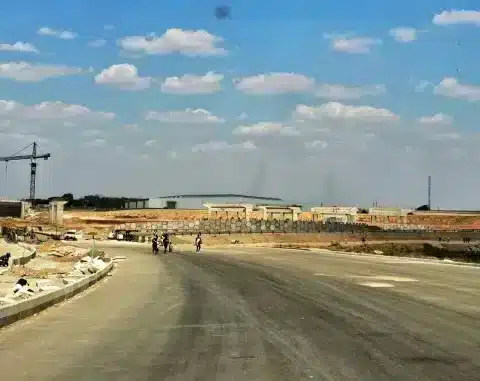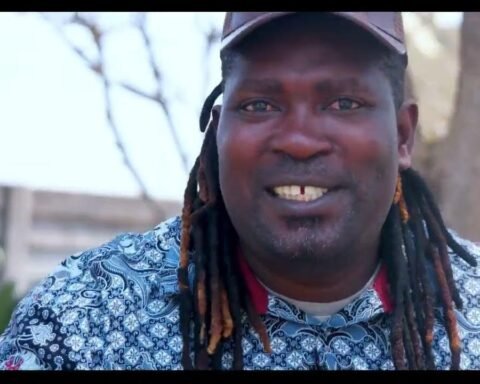By Gift Phiri
The wife of President Robert Mugabe, Grace, might as well consider running as Zanu PF’s presidential candidate in 2023 if she happens to secure one of the positions of vice president ahead of next year’s polls, analysts said.
Mugabe hinted last week about the possibility of Zanu PF tweaking its constitution to take care of the women’s league’s persistent push for gender parity at all party levels.
At its conference in the resort town of Victoria Falls in 2015, the Zanu PF women’s league lobbied for the revival of the quota system in the top echelons of the party that had been down away with in 2014, when Joice Mujuru was dismissed from the party and government.
The issue resurfaced at the 2016 conference in Masvingo but there has not been any urgency at the party’s national headquarters in Harare to take it up.
At the women’s league’s national assembly meeting last week, the first lady raised said Zanu PF should revert to its resolutions so that a woman could ascend to the presidium.
Mugabe did not dismiss the calls, suggesting instead that the party should consider amending its constitution to incorporate a third vice president.
He said: “I want to accept that we made a mistake because we had agreed that one of the three top positions in government must go to a woman. It started during Mai Mujuru’s period and that’s where we went wrong by putting a man in that position. I think it was Cde (Emmerson) Mnangagwa.
“We can correct that either directly in the constitution at congress or another way is to accept that change, why don’t we look at the constitution.”
By virtue of being the highest-ranking official in the women’s league, analysts said the first lady was better positioned to assume the position in the event that the constitution is amended.
While this was not the case in 2004 when Mujuru overtaken her seniors in the league to replace vice president Simon Muzenda who had died in 2003, it is unthinkable at this juncture that Mugabe could prefer someone else ahead of his wife.
United Kingdom-based political expert, Stephen Chan, told the Daily News yesterday that Grace was now a potential successor to the 93-year-old President after openly challenging her husband recent to name his preferred heir and put a lid on widening cleavages over the future leadership of the ruling Zanu PF party.
She repeated the call at a youth interface rally in Chinhoyi on Saturday.
This comes as brawling over the leadership of a post-Mugabe Zanu PF has sharply escalated, with two bitterly opposed camps going hammer and tongs against each other.
One of the factions is rooting for Vice President Emmerson Mnangagwa, 74, to take over from Mugabe while the other is backing Grace, 52, who has become a potent political force.
She has arguably launched her campaign for the vice presidency and could become Zimbabwe’s first female president if her political strategy works, analysts told the Daily News.
“I think that there may be, as it were, some element of political strategy on the part of the first lady,” Chan said.
“In other words, I think that she understands that it might not be a good time for her to make her own presidential bid, but if she were a vice president, then she could buy her time while the next president really looks after a transitional administration.
“So perhaps this move is not so much about assuring Zimbabweans about the future in immediate terms of the country, but looking beyond the 2018 election to the one afterwards.”
This comes as Defence minister Sekeramayi’s political stock is rising amid indications that neutrals in the do-or-die Zanu PF war to succeed Mugabe are pushing for his elevation to occupy the top office in the event that the incumbent retires or gets incapacitated.
Chan, who is also a professor of world politics at the School of Oriental and African Studies at the University of London, said if Sekeramayi becomes the next president, then Grace could easily become one of the vice presidents, giving her a perfect position, not for the 2018 elections, but for the elections five years after.
“And by that time, what would have happened is that there would have been normal relationships, or reasonably close to normal relationships established with Western countries. And so the name Mugabe won’t be as quite problematic for Washington and Whitehall at that point in time, five years after 2018,” said Chan.
“In international political terms, it might be a very wise move, provided of course the opposition parties don’t grow stronger in that interim. But at this moment of their disorganisation, they will have to work very, very hard to be a credible alternative to government after 2018.”
Though Grace insists she has no such plans, she has developed a remarkable knack in recent days for headlining campaign rallies, with the influential first lady ominously accusing Mnangagwa of, among a litany of other deadly charges, deception, faking love for Mugabe, and in fact working feverishly to topple the long-ruling nonagenarian from power.
Mugabe has not said he would want to relinquish office, but analysts have cited reasons ranging from exhaustion to health problems to a long term plan to hand the reins to his wife.
Mugabe has spoken in glowing terms about Grace, the mother of his three children.
Grace, 52, who has become a power broker in Zanu PF since her elevation to head the women’s league in 2014, has now taken a prominent role, embracing public speaking but lacking the inspired zeal of her husband, the grandiloquent Mugabe.
Political analyst Dewa Mavhinga said from the time of the witch hunt directed at Mujuru in 2014, it was clear that Grace had ambitions for highest office, which may have been tacitly supported by her husband, in the face of widespread resistance to a Mugabe dynasty within Zanu PF and among ordinary Zimbabweans.
“The idea of a Mugabe family dynasty remains hugely unpopular, and therefore Grace may be angling to be the kingmaker, or the power behind the throne, choosing instead to put another person forward as Mugabe’s successor, with Grace pulling the strings behind the scenes,” said Mavhinga.
“There is speculation that such a candidate could be Defence minister Sekeramayi, with Grace occupying the powerful vice president position together with another trusted ally, possibly professor Jonathan Moyo.”
Josphat Munetsi, a peace and security analyst and doctoral researcher, said that the first lady has ambitions to take over the presidency was as clear as night and day and her statements on succession must be interpreted in that light.
He said the whole debate about the amendment to the Zanu PF constitution to allow for gender parity is to ensure that Grace is appointed VP at the 2019 elective congress. Thereafter, Mugabe will amend Section 14 (4) (a) of the Sixth Schedule of the Constitution to allow Grace to take over.”
“Several key incidents signify her latest onslaught towards the apex. When Grace Mugabe acquired her PhD that was the foundation of the political master plan to ‘clothe’ her with academic credentials fit for that office.
“Her taking over of the highest office in the women’s league and the subsequent purging of Joice Mujuru, Eunice Sandi Moyo and Sarah Mahoka was precisely to clear potential hurdles to her quest for power,” said Munetsi.
“Certainly, the purging of potential political opponents towards the usurpation of the highest political office is not a Grace Mugabe creation. In fact, this is the Robert Mugabe political chess game that has characterised his political trajectory since the 1960s. The numerous trips to useless conferences is to teach her the dynamics of global real politik,” he said.








